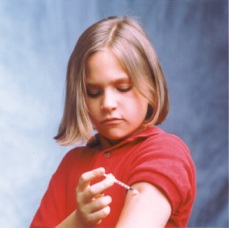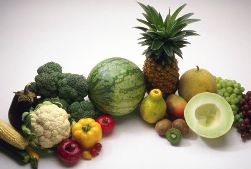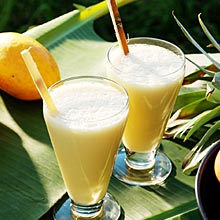|
What is Hypoglycemia?
This or blood sugar is a disorder of blood sugar metabolism which may result in
diabetes in later life. It is a condition in which the pancreas produces too much insulin, causing
the blood sugar to drop.
It sometimes occurs in healthy people some hours after a meal rich in
carbohydrates, especially following muscular exertion. It is frequently found in the first few days
of life, especially among premature infants.
It is a serious disorder as the brain cannot function properly when the blood sugar
level is too low. Like all other organs of the body, the brain receive its fuel from the diet. But it
can use only the sugar produced by the body from carbohydrates. Unlike many of the body
tissues, it cannot store its fuel. Therefore, it must get a constant supply of sugar through the
bloodstream. Mental disturbances caused by subnormal blood sugar levels can seriously affect
a person’s life.
Signs & Symptoms of Hypoglycemia
It usually affects adults and children over 10 years of age as a side effect of taking diabetic medication, although other ailments and medications can also bring it on. A craving for sweets and starches in excessive amount between meals is the first sign of low
blood sugar level . When the blood sugar level falls much below normal, symptoms such as
nervousness, irritability, fatigue, depression, disturbed vision and headache appear. Symptoms of this include anxiety, trembling, heart palpitations, sweating, and dilated pupils, trembling, numbness, absent-mindedness, dizziness, palpitation of the
heart and some sexual disturbances. Most hypoglycemia patients feel hungry and eat frequently
to get over the feeling of weakness and emotional irritability. They feel tense if they have to go
without food for several hours. Symptoms of this include anxiety, trembling, heart palpitations, sweating, and dilated pupils. Many symptoms can occur or become more severe after eating.
What Causes Hypoglycemia?
Hypoglycemia is usually caused by an excessive intake of refined carbohydrates and sugar
foods. These substances cause the pancreas, the adrenal gland and the liver to lose their ability
to handle the sugar properly. Other causes of low blood sugar are a tumour, disturbed
functioning of the liver, pituitary gland or adrenal glands. Stress intensifies this condition as it
weakens the adrenal glands and starts a faulty pattern of glucose intolerance.
Risk Factors: The majority of hypoglycemic suffers have Diabetes. Due to being diabetic their body struggles to bring blood sugar levels back within a normal range should they start to fall. This can leave you feeling hungry, anxious, weak, light-headed or sleepy with excessive perspiration and dizziness. This is not a common condition in people without diabetes and is usually associated with another illness or medication. While, reactive hypoglycemia happens within about 4 hours of eating a meal.
Prevention:
Should you suffer from reactive hypoglycemia the following steps have been suggested by some health officials to counter the symptoms - eating little and often, exercising regularly, having a varied, high fiber diet and cutting out or reducing your intake of sugary foods. Telling your friends and work colleagues what your particular symptoms are so they can watch out for you and remind you to eat when you appear to become irritable or fatigued. Keeping suitable snacks on hand and remembering to eat regularly to keep your blood sugar levels steady, limiting alcohol consumption and finally checking your glucose levels before using heavy machinery, driving or doing any strenuous exercise.
Treatment/Therapy: Hypoglycemia - Know Diabetes To Control It This is notwithstanding the fact that different persons suffering from this dysfunction may have different types of symptoms. Mentionably, hypoglycemia retraces its steps the moment the blood sugar level turns normal.
A healthy diet is essential in treating hypoglycemia. Eliminating sugar from the diet, or greatly reducing it proves to have positive results. This includes candy, cookies, pastries and other types of sweets commonly eaten. Care should also be taken to reduce the amount of alcohol and caffeine intake.
Diet change strategies: Vegetables which can be taken in hypoglycemia are asparagus, beets, carrots, cucumbers,
egg-plants, peas, radishes, tomatoes, spinach, kale, lettuce, beans, baked potatoes. Fruits
which can be taken are apples, apricots, berries, peaches, and pineapples. Consumption of
citrus fruits should be limited. Foods rich in vitamin C , E and B-complex are highly beneficial in the treatment of low blood
sugar. Vitamins C and B increase tolerance to sugar and carbohydrates and help normalise
sugar metabolism. Pantothenic acid, and vitamin B6 help to build up adrenals which are
generally exhausted in persons with hypoglycemia. Vitamin E improves glycogen storage in the
muscles and tissues. The patient should take vitamin C in large doses from 2,000 to 5,000 mg.;
B6 50 mg. and vitamin E upto 1,600 lu daily.
Using Ayurveda Therapy: The high animal protein diet generally prescribed for hypoglycemia is not suitable for this
disorder. It may help control the condition temporarily, but it is harmful in many other respects
and may result in other diseases like heart trouble, arteries, kidney problems and cancer.
The ideal diet for hypoglycemia should be based on three basic food groups, namely grains,
seeds and nuts, vegetable oils. Seeds, nuts and grains should be the main constituents of the
diet. Seeds and nuts should be taken in their raw form. Grains, in the form of cereals, should be
cooked. Cooked grains are digested slowly and release sugar into the blood gradually six to
eight hours after meals. This will keep the blood sugar level normal and constant for a long
period. Persons suffering from low blood sugar should take six to eight small meals a day instead of two
or three large ones. Eating raw nuts and seeds such as pumpkin or sunflower seeds or drinking
milk, butter milk or fruit juices between meals will be highly beneficial. All refined and processed
foods , white sugar, white flour and their by-products should be completely eliminated from the
diet. Coffee, alcohol and soft drinks should also be avoided. The consumption of salt should be
reduced as an excessive intake of salt causes loss of blood potassium, which causes blood
sugar to drop. The following is the menu suggested for hypoglycemia.
On rising : Fresh fruits such as apples,peaches, melons, berries, avocado or a glass of fresh
fruit juice. Breakfast : Nuts, seeds, fruit, cottage cheese and buttermilk. Mid-morning : Fruit, fruit juice or tomato juice. Lunch : Cooked cereals and milk. Mid-afternoon : A glass of fruit or vegetable juice or a snack consisting of nuts. Dinner : Vegetable salad with a cooked vegetable from among those allowed, one or two slices
of whole wheat bread,cottage cheese and butter milk. On retiring : A glass of milk or buttermilk. Yogasanas like vakrasana, bhujasana, halasana, sarbagasana and
shavasana and pranayama like kapalbhati and anuloma-viloma will be beneficial. A prolonged
neutral immersion bath is also helpful in relieving mental tension.
Vitamin & Nutrient Associations
Vitamins, Minerals and Supplements against Hypoglycemia and Diabetes Here are a few significant vitamins, minerals and supplements against Hypoglycemia and or diabetes. Vitamin D A research conducted in Finland, where people are exposed to very little sunlight, proved that Vitamin D protected children against high blood sugar, a first sign of diabetes. The experiment was conducted on 12,000 children who were administered Vitamin D from birth (1966). Researchers published in 2001 that they have observed that 80% of the risks for diabetes were reduced, mainly preventing high blood sugar, than that of those that did not receive Vitamin D supplements. Vitamin E Vitamin E is a fat-soluble nutrient found in milk, plant leaves and wheat germ oil. It has been proven to aid reproduction in both lab experiments and actual human experience. A widely used form of Vitamin E, alpha-tocopherol is ingested into the body in the form of gel capsules. Though its effect in diabetes prevention is real, an increase in the vitamin intake was not proven to be proportional to the level of prevention. Minerals Magnesium and potassium are minerals that aid in carbohydrate and protein metabolism. The proper breakdown and synthesis of carbohydrate into simple sugars is a function that diabetics lack. With the aid of the two minerals, it can help prevent the disease. Chromium and zinc facilitate the recognition of insulin in the body. Supplements Mamordica Charantia (bitter melon) is a vegetable that is rich in nutrients that enhance the production of beta cells, thus improving insulin production by the pancreas. In the Philippines, where the plant originates, it is a recommended supplement. Chinese herbal medicine also swears by this plant and actually uses it traditionally to address sterility, skin diseases and gastro-intestinal diseases. If one is able to tolerate the bitter taste, then it promises a high chance of improving pancreatic activity (by as much as 54%). Coupled with a sensible diet and healthy lifestyle, using vitamins, minerals and supplements like the ones above, can help fight the problem. Even when we try to eat well, we're disadvantaged. The nutritional content of most food has been compromised over the years, not only by deficient soils and modern production, transportation, storage and processing methods, but also by the enormous amounts of chemical and artificial substances added to promote growth, storage life, taste and appearance. It's for this reason that more and more medical authorities are advocating the use of vitamin and mineral supplements. However, finding them in the right combination can be both confusing and costly. Supplementation programs and Hypoglycemia Weight loss programs If you are overweight and have diabetes then losing weight is a major priority for you. There is a lot of information available through our AtoZ directory and here a quick link to the main weight loss page: Weight Loss Use of a weight loss program is an obvious way to work on the problem but if you are diabetic you will know that you need to be careful about how you approach any change in your diet and food habits. We will walk through some of the issues here so you are clear that you can be on a weight management program in a way that will support rather than hinder your diabetes problem.
The largest direct sale weight control/supplement company in the world is the Herbalife company. I am going to use their products here to show you how such supplements should be used and show you the pitfalls and the solutions offered by that style of meal replacement product. The same principles will apply to any weight loss/reduced calorie diet. They were established in 1980 and have always worked their nutrition/weight control program around a soy based amino-protein powder that is used as a meal replacement for weight loss and a meal supplement for weight gain. This is supported by a range of herbal and vitamin & mineral tablets to give a balanced nutrition foundation for weight loss and for wellness. There are a few issues here that can cause problems for a diabetic and the use of meal replacements can be a terrible challenge for diabetics. If you use one as directed on the can you will have extended times without food and without sugars and then end that “fast” with a large food/sugar hit. You will be aware that this can be a big problem. Fortunately Herbalife at the very start taught that food, especially herbs, gets into your body quickly and gets out quickly so any supplement you are using should be taken 3 times a day. This is considered fairly standard nowadays but back in the 80’s it was a revolutionary concept. The meal replacement is to be used for 2 meals and a “normal” meal of whatever you would normally have for the third meal. Vitamin and mineral supplements are used at each normal meal time. For a diabetic this does not work so you need to make adjustments. Instead of taking a nutrition “shake” in the morning and one at lunch you need to halve the powders and take half for breakfast, half for morning tea and then another half serve for lunch and the other half of the second serve for afternoon tea. This gives you a steady flow of nutrition and the stabilizing influence of the soy products that are the foundation for the shakes on a regular pattern. The sweetness in the shakes is generally fructose (fruit sugars) that are helpful in keeping diabetes stable. Using such a program in this manner tends to stabilize sugar levels. “Brittle” diabetics are people who tend to have sudden drops in blood sugar that can be very pronounced and even cause blackouts. In these cases a week or so on this regular nutrition program normally balances out the problem and the energy drops are much less prominent for them. The other controlling factor is the medium the shakes are mixed in. If you use a fruit juice then you are taking extra fructose. If you use Soy Milk then you have a different level of sugar intake. It is good to play with these as a tool to help balance the diabetes problem. A word of warning. If you are looking at any meal replacement it is wise to use one with a soy base. If, as many are, the shake is milk based then anyone with lactose intolerances or other milk allergies with have problems. If you are using a meal replacement program like this then the nutrition supplements play a big role in improving overall wellness and improving the metabolism and that also works towards a feeling of more energy and better weight loss results.
Blood health. Earlier we talked about the use of Omega 3 & 6 fatty acids. We quoted The University of Maryland Medical Center saying: “Individuals with diabetes tend to have high triglyceride and low HDL levels. Omega-3 fatty acids from fish oil can help lower triglycerides and apoproteins (markers of diabetes), and raise HDL, so people with diabetes may benefit from eating foods or taking supplements that contain DHA and EPA. ALA (from flaxseed, for example) may not have the same benefit as DHA and EPA because some people with diabetes lack the ability to efficiently convert ALA to a form of omega-3 fatty acids that the body can use readily. There have been slight increases reported in fasting blood sugar levels in patients with type 2 diabetes while taking fish oil supplements.” For information on these products check Herbalifeline
You may find benefit from our information on detoxification as well as a bit about detoxing because of change of diet We wish you well in your search for solutions to this problem and your movement towards better health in all areas.
More Resources available about Hypoglycemia :
Diabetes in adolescents These problems are not only faced by adults, but also adolescents who get diabetes in their childhood. The important factor in treatment of the problem is to keep the blood sugar level normal at all times.
Diabetes The disease comes in two forms: Type I and Type II. Both, however, are similar in that both types involve the hormone insulin in the body and its ability to process sugar in the bloodstream. Too much or too little sugar in the body has adverse effects ranging from kidney failure, eyesight loss, and in extreme cases, coma. Diabetes is a devastating disease which can damage the vital organs of the body including the kidneys, heart and the eyes. While it does not really kill people, it can result in more serious and complicated diseases. The problem may not kill people as a general rule, but it makes them lose their eyesight, and leads them to kidney and heart problems, and later on, death.
One of the best sources for information pertaining to
diabetes is the American Diabetes Association (ADA). Here
is a link to their Web site: ADA On the side bar of ADA´s Web site, look for "Diabetes
Information". Under that sub-heading, click on "Take the
Risk Test" for a quick online test to see if your are at
risk. Under the same sub-heading, you will find "General
Information", information for "Newly Diagnosed"
patients, "In the News" for the latest updates, "Tip of
the Day", and so much more. Be sure to check out
the "Recipe of the Day". If you are at risk, see your doctor to be tested.
development of Type II diabetes can be postponed. Through
proper diet and exercise habits, you may never develop
this disease. Use this article as your wake up call to
start eating healthy. Here is a link for Diabetic Recipes: Soar Berkeley
Guidelines for a diabetic diet rely on the proportion of
carbohydrates to proteins and fats. The diet needs to
provide some dietary fat to help prevent post-meal spikes
in blood sugar levels. However, saturated fats should be
limited to reduce the risk of heart disease. Protein
should be kept to 20% or less of your daily calories in
order to prevent or delay the onset of diabetic kidney
disease.
You can visit our health food products page here: Herbalife Health Nutrition Supplements to learn more about some of the nutrition products mentioned in our recommendations above. We also feature new health articles & self care solutions every month in “Your Health Success” our FREE Health Magazine, so subscribe today to stay up-to-date!
 to “Your Health Success” our monthly F’R’E’E’ Newsletter
If you are interested in products mentioned on this site and want to check pricing and availability in your country, then please click back to the home page of the person who referred you here.
Back to Top of your health online Hypoglycemia page *** GENERAL RELEASE AND ASSIGNMENT I understand that in submitting my material for publication I am granting the rights to reproduce this material on the internet or in other form and I have read the conditions above
============================================================
|




